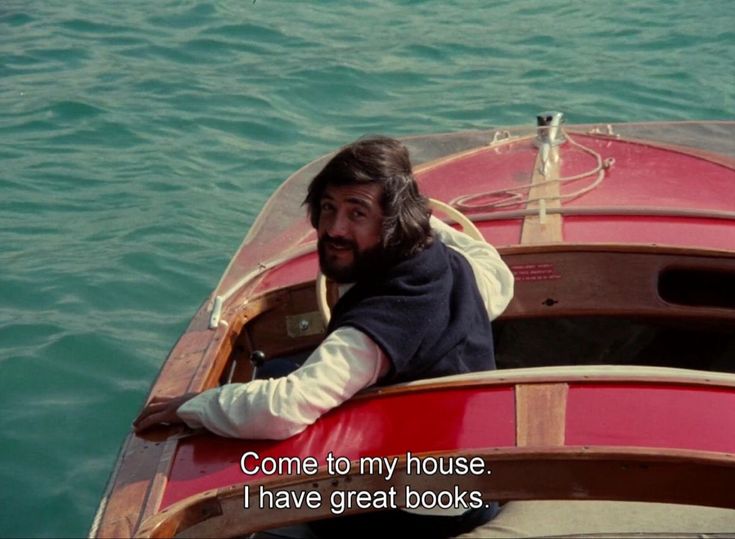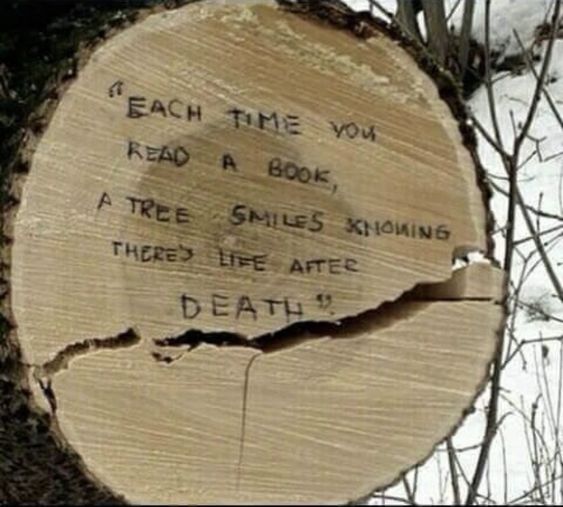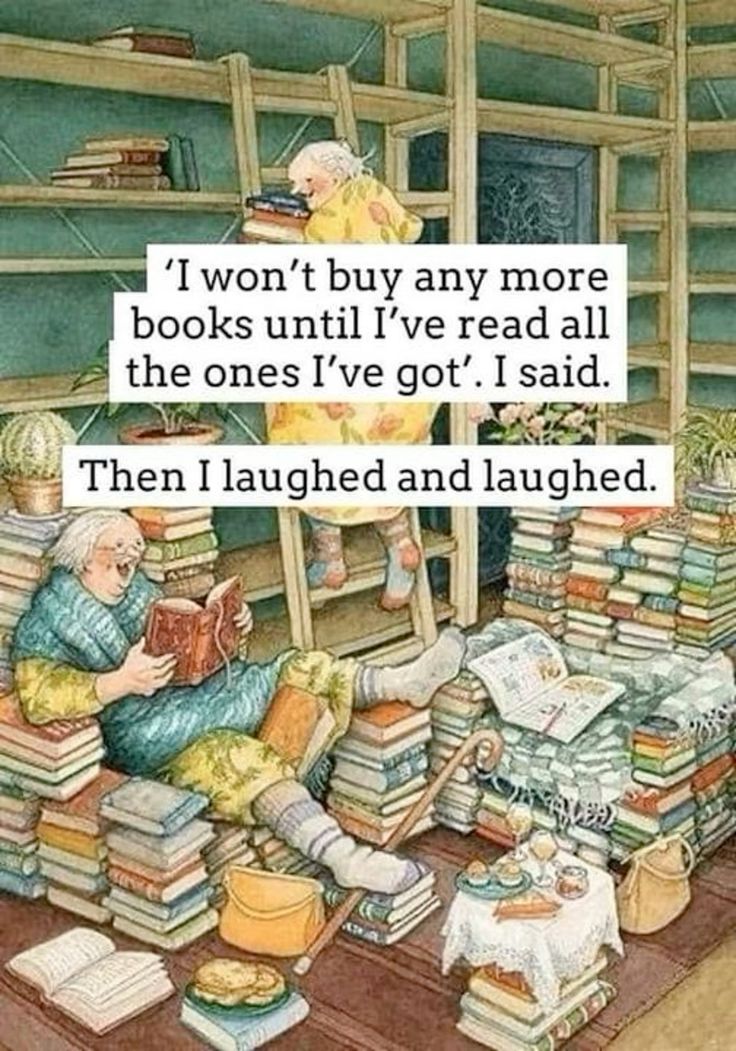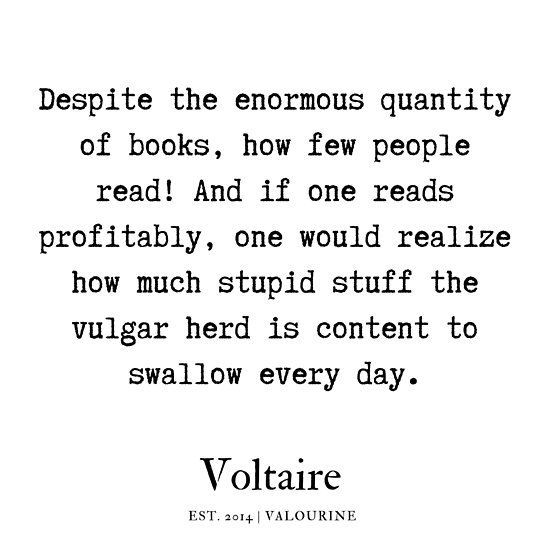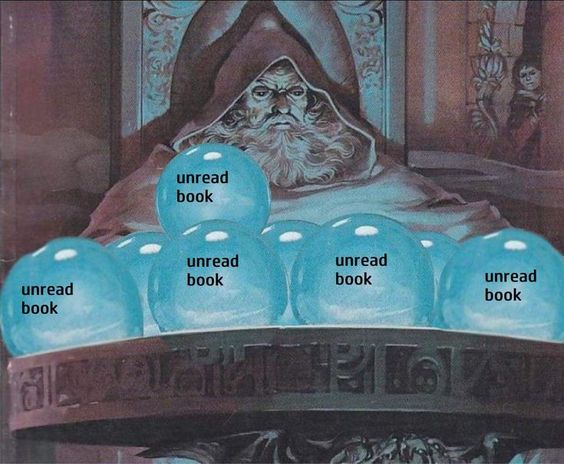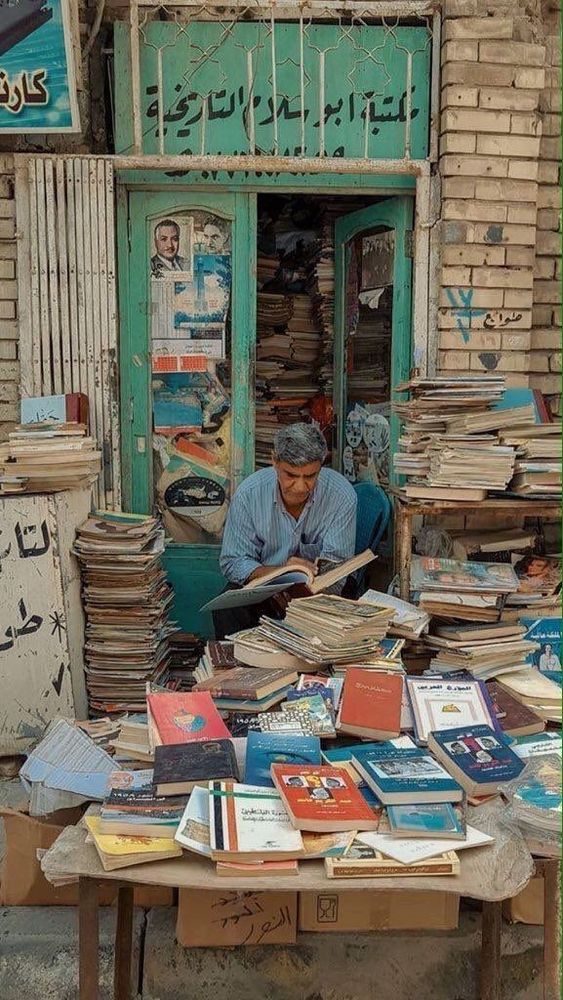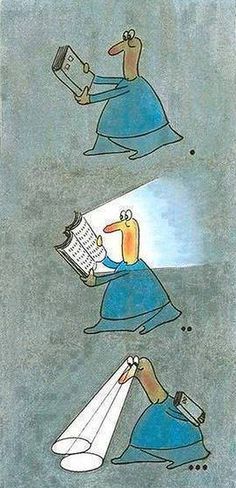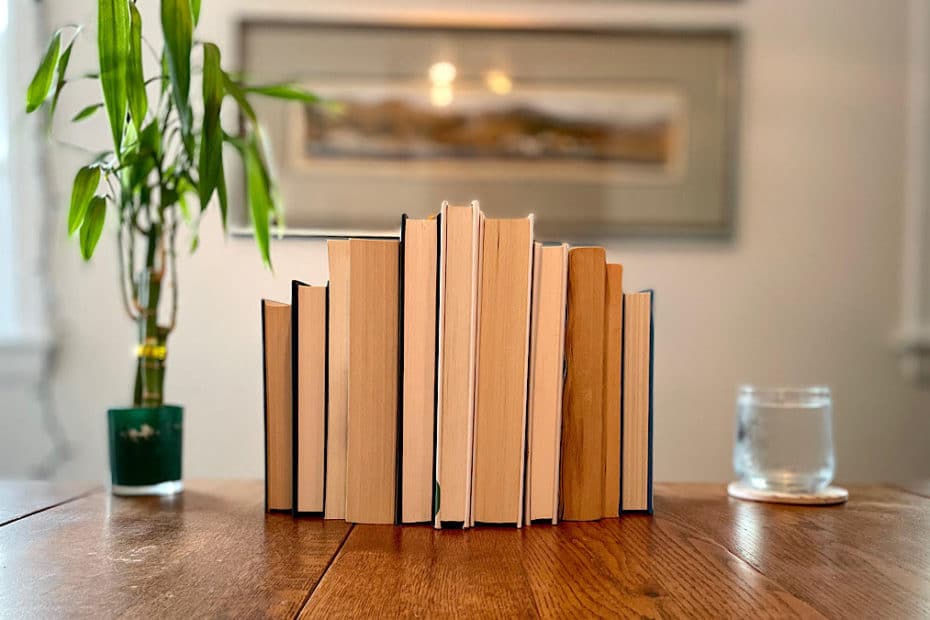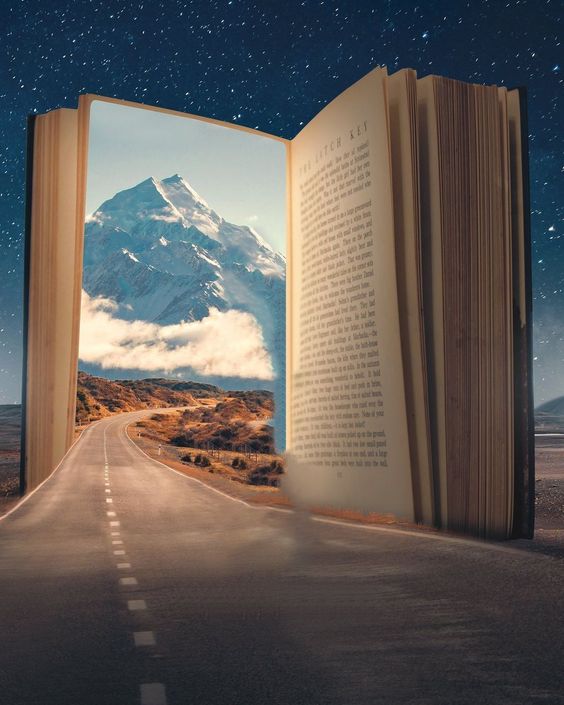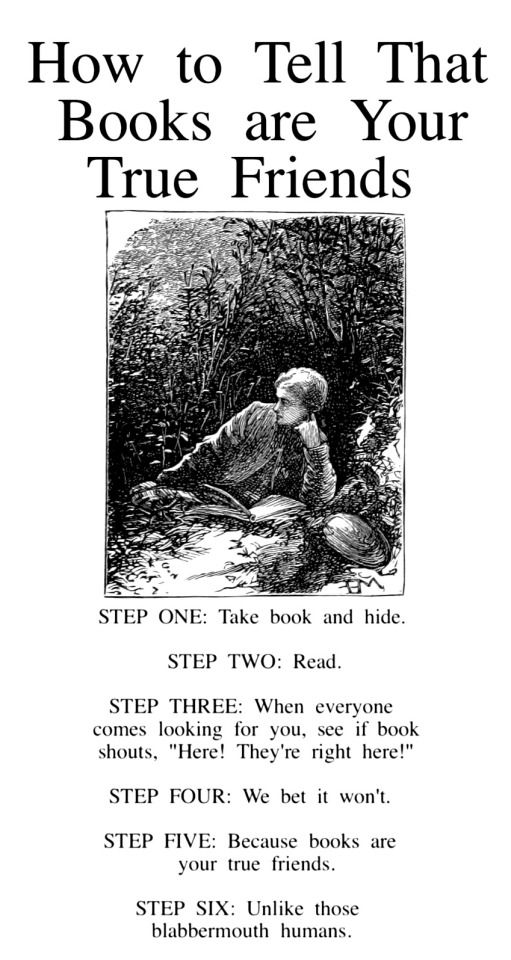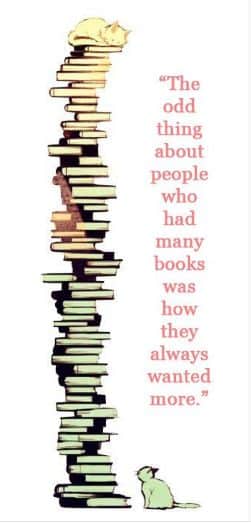“There is only one way to read, which is to browse in libraries and bookshops, picking up books that attract you, reading only those, dropping them when they bore you, skipping the parts that drag – and never, never reading anything because you feel you ought, or because it is part of a trend or a movement. Remember that the book which bores you when you are twenty or thirty will open doors for you when you are forty or fifty-and vise versa. Don’t read a book out of its right time for you.”
Doris Lessing
Floating, Inverted Bookshelves
Why We ♥ It: …Are you kidding me? How cool to see books hanging upside down on floating shelves…! These innovative and inexpensive shelving units allow you to showcase both above and below presenting you a completely unique opportunity to create personalized, stylish, and eye-catching arrangements. Plus, they’re crafted from natural wood and sturdy metal brackets to ensure durability.
“I asked you if I could take some books from the house to have in my dorm room. You reached up, pulled on my neck, and kissed me on the top of the head. I pulled away. ‘Maybe the books will protect you,’ you said. ‘Take all the books you need. And don’t fight when you’re angry. Think when you’re angry. Write when you’re angry. Read when you’re angry. Don’t let those people shoot you out of the sky while I’m gone.’ I rolled my eyes and sucked hard on my teeth as you walked to the end of the line. ‘Don’t be good,’ you said across the space between us. ‘Be perfect. Be fantastic.'”
Kiese Laymon, Heavy (Page 119)
“Books are the carriers of civilization. Without books, history is silent, literature dumb, science crippled, thought and speculation at a standstill. Without books, the development of civilization would have been impossible. They are engines of change (as the poet said), windows on the world and lighthouses erected in the sea of time. They are companions, teachers, magicians, bankers of the treasures of the mind. Books are humanity in print.”
Barbara Tuchman
“Books hold most of the secrets of the world, most of the thoughts that men and women have had. And when you are reading a book, you and the author are alone together—just the two of you. A library is a good place to go when you feel unhappy, for there, in a book, you may find encouragement and comfort. A library is a good place to go when you feel bewildered or undecided, for there, in a book, you may have your question answered. Books are good company, in sad times and happy times, for books are people—people who have managed to stay alive by hiding between the covers of a book.”
EB White, Letters to the Children of Troy
“I consider reading the greatest bargain in the world. A shelf of books is a shelf of many lives and ideas and imaginations which the reader can enjoy whenever he wishes and as often as he wishes. Instead of experiencing just one life, the book-lover can experience hundreds or even thousands of lives. He can live any kind of adventure in the world. Books are his time machine into the past and also into the future. Books are his “transporter” by which he can beam instantly to any part of the universe and explore what he finds there. Books are an instrument by which he can become any person for a while—a man, a woman, a child, a general, a farmer, a detective, a king, a doctor, anyone. Great books are especially valuable because a great book often contains within its covers the wisdom of a man or woman’s whole lifetime. But the true lover of books enjoys all kinds of books, even some nonsense now and then, because enjoying nonsense from others can teach us to also laugh at ourselves. A person who does not learn to laugh at his own problems and weaknesses and foolishness can never be a truly educated or a truly happy person. Also, probably the same thing could be said of a person who does not enjoy learning and growing all his life.”
Gene Roddenberry
“Mike Schur, co-creator of Parks and Recreation, said of his career, ‘This is not stuff you can read in a book,’ he said. ‘This is stuff that you have to experience.’ I think it’s also useful to flip it around. There are things you will have trouble experiencing until you read them in a book. A useful non-fiction book is a map, not the territory. It’s a chance to safely experience what might be, to experience it before it happens. And a book makes it easy to talk about what you’re doing. It gives you the structure and the words to explain to someone else why they might want to come along with you on the journey.”
Seth Godin
“A library is a good place to soften solitude. A place where you feel part of a conversation that has gone on for hundreds and hundreds of years even when you’re all alone. The library is a whispering post. You don’t need to take a book off the shelf to know there is a voice inside that is waiting to speak to you, and behind that was someone who truly believed that if he or she spoke, someone would listen.”
Susan Orlean
The 12 Most Influential Books on MoveMe Quotes in 12 Years of Publishing!
Excerpt: Check out the 12 most influential books that have impacted MoveMe Quotes in over 12 years of quoting, accompanied with the greatest lesson from each!
Read More »The 12 Most Influential Books on MoveMe Quotes in 12 Years of Publishing!
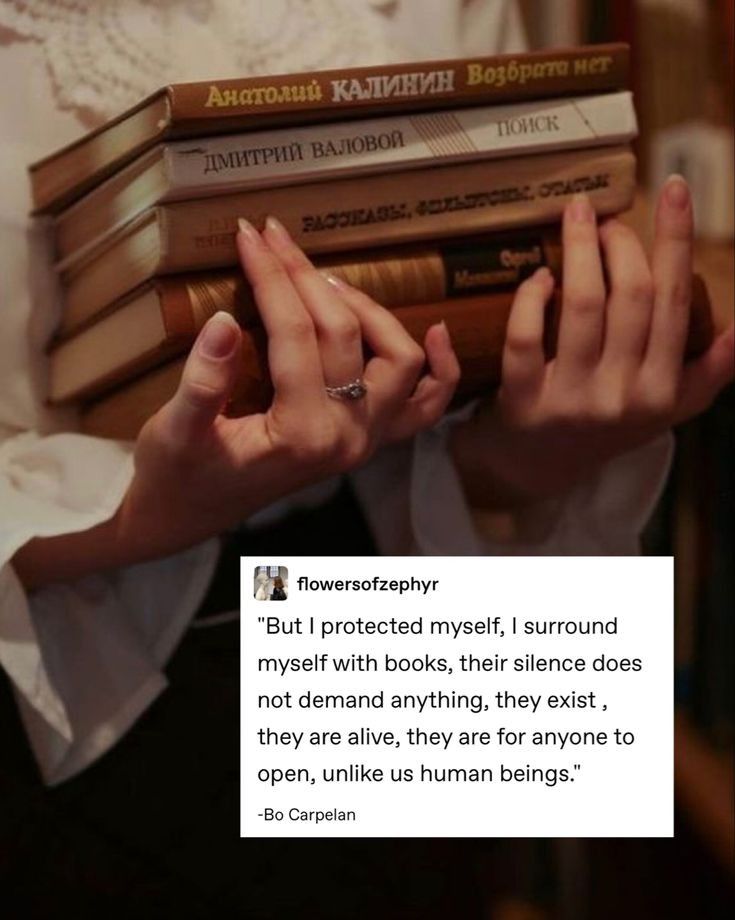
![[MMQ ♥’s] Inverted, Floating Bookshelves [MMQ ♥’s] Inverted, Floating Bookshelves](https://movemequotes.com/wp-content/uploads/2024/11/Inverted-Book-Shelf.jpg)
